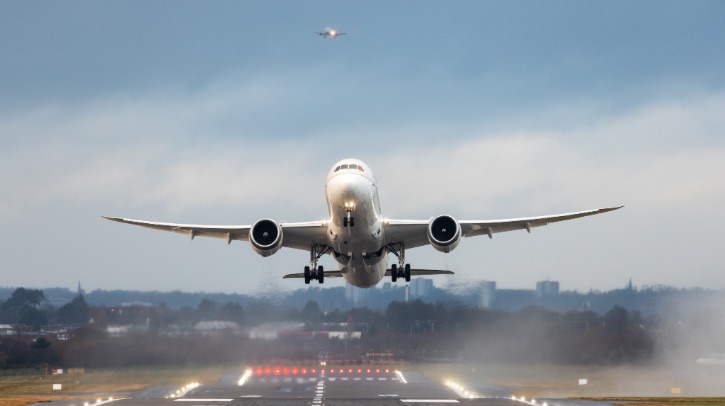The UK Department for Transport (DfT) has unveiled new plans to modernize UK airspace design and ensure there are fewer delays and reduced bottlenecks for passengers.
Efficient airspace design
In a step toward delivering a manifesto pledge to support airspace modernization, a consultation will run until December 17, 2024, seeking views on proposals to establish a UK Airspace Design Service – a new team of aviation experts who will lead the charge and work with UK airports to improve the way planes fly in, out and over the UK, starting by looking at London’s airspace.
By facilitating upgrades of the ‘highways of the sky’, the plans could reduce delays, emissions and noise pollution – making the industry more efficient and delivering important economic growth for the whole of the UK.
In July 2024, UK airspace experienced some of its busiest days on record with over 8,239 flights. With over 2.6 million aircraft flying through the UK every year, both DfT and the UK Civil Aviation Authority (CAA) are seeking views on how a UK Airspace Design Service could deliver on airspace modernization – utilizing new technology to meet demand and ultimately help pave the way for incorporation of new technologies, such as drones and spacecraft.
Mike Kane, minister for aviation, maritime and security, said, “UK airspace is one of the nation’s biggest invisible assets, but it’s been stuck in the past – a 1950s pilot would find that little has changed. Our once-in-a-generation creation of a UK Airspace Design Service will not only drive forward airspace modernization and create a system that’s fit for the future, but it will help create quicker routes, ease delays and reduce harmful emissions – making air travel a better experience for all. Much of our current airspace was designed in the 1950s when there were fewer flights and aircraft navigated using a series of ground-based beacons.
“By enabling aircraft to use advanced navigation technologies, the UK Airspace Design Service will be able to plan the more efficient use of the finite amount of airspace in the UK, including the use of continuous climb and descent profiles and reduced need to hold aircraft. London airspace is the busiest and most congested in the UK and delays in London often have a knock-on effect for the rest of the UK. The first phase of the UK Airspace Design Service would focus on the complex and busy airspace around London and the South East.”
Reducing emissions
Rob Bishton, chief executive at the CAA, added, “Modernizing our airspace is crucial to delivering a more efficient, sustainable and resilient system. The proposals we’ve outlined today set out the next steps in our ongoing efforts to progress the modernization of UK airspace. This builds on the important work already done across the industry toward a more streamlined, sustainable airspace system that benefits passengers, airlines and local communities. The UK Airspace Design Service would create a holistic and integrated design, simplifying the process and bureaucracy in coordination with airports, airlines and air navigation service providers to deliver benefits for passengers and local communities impacted by aviation noise.
“Airspace modernization will reduce disruption as airlines utilize more efficient flight paths. It could also cut harmful emissions with planes spending less time in the air, supporting our mission to create a greener industry alongside the use of sustainable aviation fuel (SAF) and the upcoming SAF mandate. All this goes hand in hand with the government’s commitments to tackle climate change, get us to net zero by 2050 and secure the aviation sector’s long-term future.”
Martin Rolfe, CEO of NATS, commented, “Any initiative that can help speed up the modernization program for UK airspace is very welcome, especially in London and the South East. It is some of the busiest and most complex airspace in the world with take-offs and landings at five major airports and several smaller ones. This is the next big step in modernizing UK airspace following the work we have already completed in other parts of the country and we welcome the government’s consultation on how best to deliver it.”
In related news, the DfT recently released the results of a survey into passengers’ experiences of security screening – finding that 87% of passengers are satisfied with the UK airport screening experience. Click here to read the full story.

